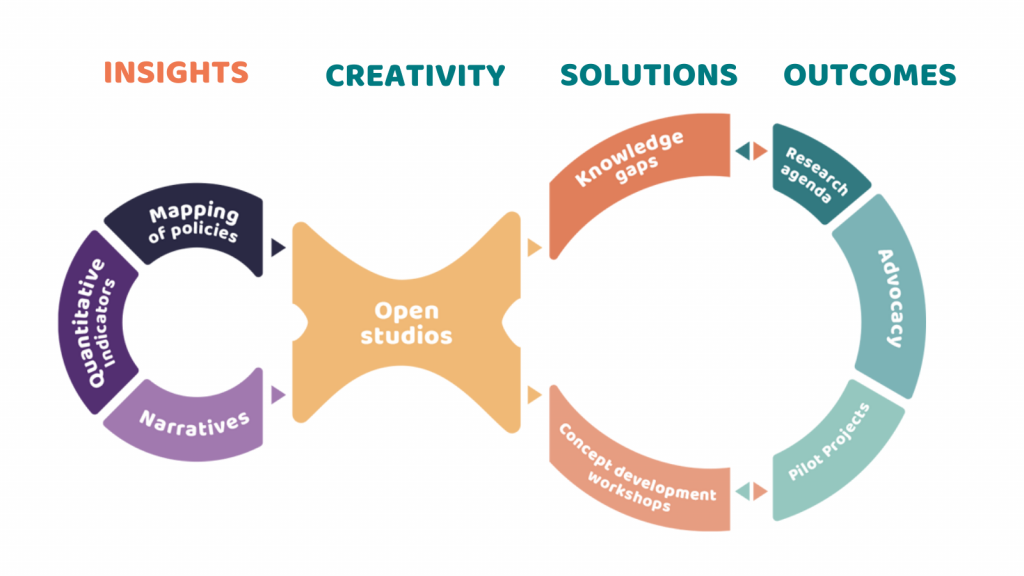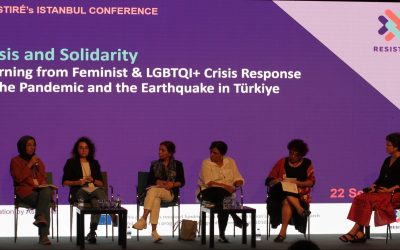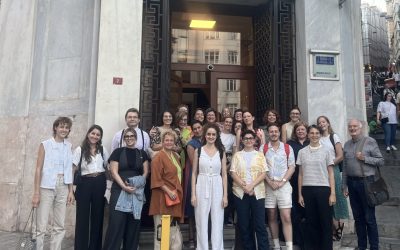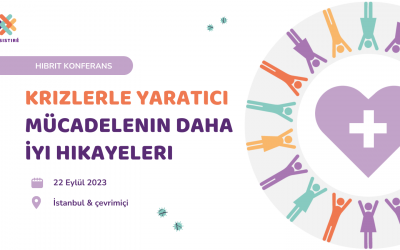To what extent have COVID-19 policies impacted gendered inequalities in Europe? How have women, vulnerable groups, and society in general responded to these inequalities? The first phase of the RESISTIRÉ project cycle is already providing answers to these questions.
Our team is currently implementing research activities planned for the Insights phase. This explorative phase is organised into three main activities, running in parallel and feeding results into the next project step, where they will be analysed and translated into operational tools in a co-creative environment involving multiple stakeholders.

The RESISTIRÉ project cycle
Mapping national policies to counter COVID-19
One main task is mapping national and regional health policy responses to outbreaks in 31 countries: the EU27, Serbia, Turkey, the UK and Iceland. With the support of national experts of inequalities recruited during the first months of the project, the RESISTIRÉ team is also investigating the presence (or absence) of societal responses in each country.
The objective is to understand where and how the policy responses have hurt women and other vulnerable groups, and to identify promising and inspiring practices stemming from civil society to mitigate these adverse effects.
RESISTIRÉ adopts a gender+ and intersectional perspective, acknowledging the importance of considering additional vulnerabilities – social status, disabilities, migration status, ethnicity, age and sexual orientation – in its research.
Measuring the negative impact of COVID-19 policies on inequalities
Another main objective of the project is gathering measurable evidence on the economic, social and environmental impact of COVID-19 policies. This step begins with the analysis and comparison of all the data available for the 31 European countries included in the project.
RESISTIRÉ is also mapping existing surveys in each country, with the aim to establish a collaborative relationship with the entities that have run the most relevant surveys.
Finally, the team is leading, together with the Institute for ethical AI, the development of a data collection app. The app will be a key tool to measure behavioural responses and impacts on the population, and particularly to fill in data gaps identified by our team during their research activities.
The app will be available by the end of September 2021, followed by a campaign to recruit specific group samples and a general population sample that will take part in the app-based survey.
Collecting individual experiences of inequality
Gaining truly in-depth insight by gathering personal experiences will be key to developing a full picture of the inequalities stemming from COVID-19 policies.
RESISTIRÉ is collecting this qualitative evidence through workshops, interviews, and the collection of personal narratives. Thanks to the recruitment of a wide network of national experts, the project can gather this evidence for each of the 31 countries involved in the project.
The data collection will be done through pan-European meetings with national experts, complementary interviews with local public authorities, and several hundred of individual, first-hand experiences of inequality.
The knowledge acquired will result in the development of personas, which can be used by policymakers to ensure that they design policies that take into account the real, lived and observed experiences of individuals.
Ensuring timely and operational results
The research results of the first project cycle will soon be available on our website by October 2021. You can keep an eye on the project insights, our publications, or browse research results by country.



